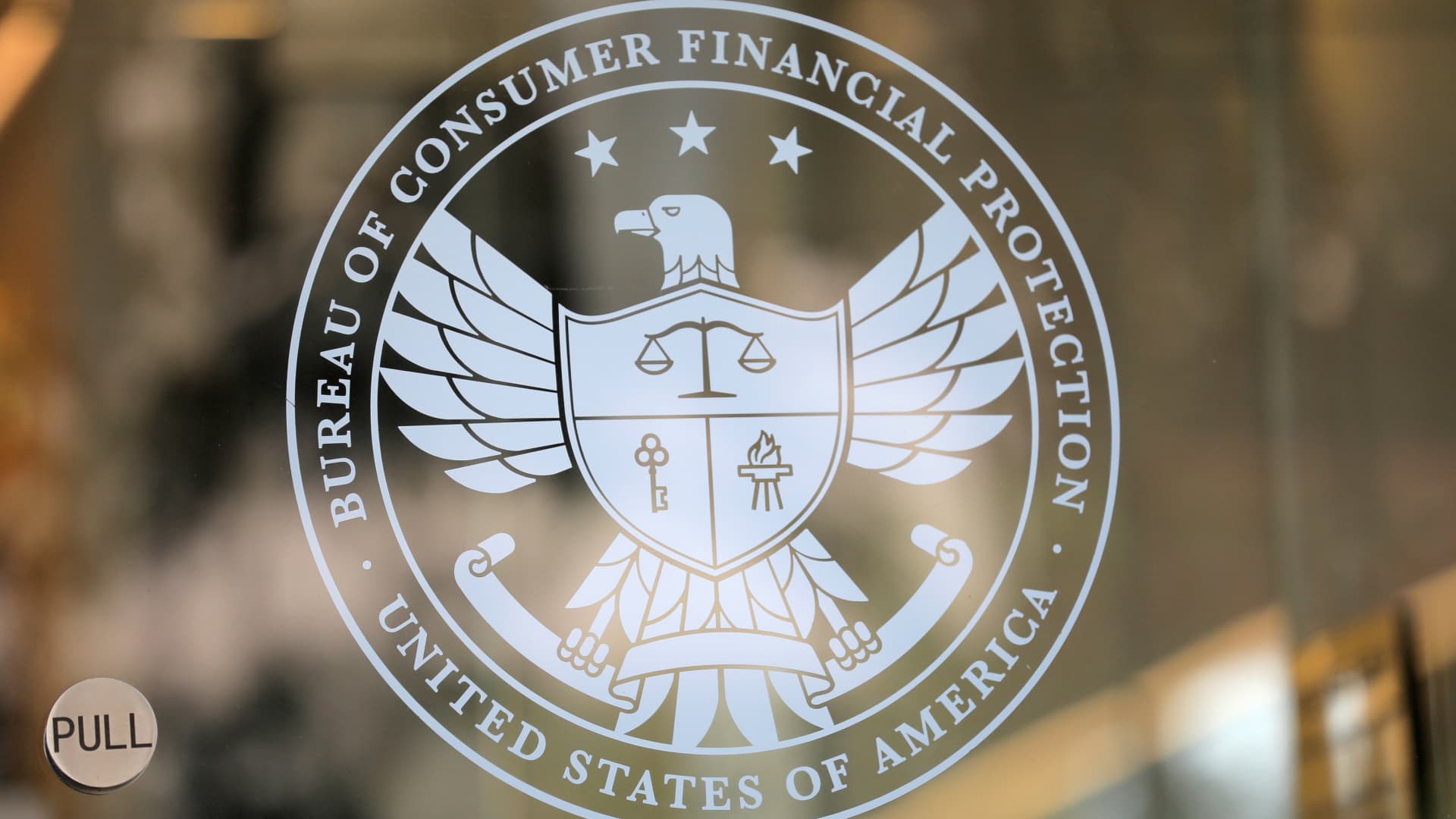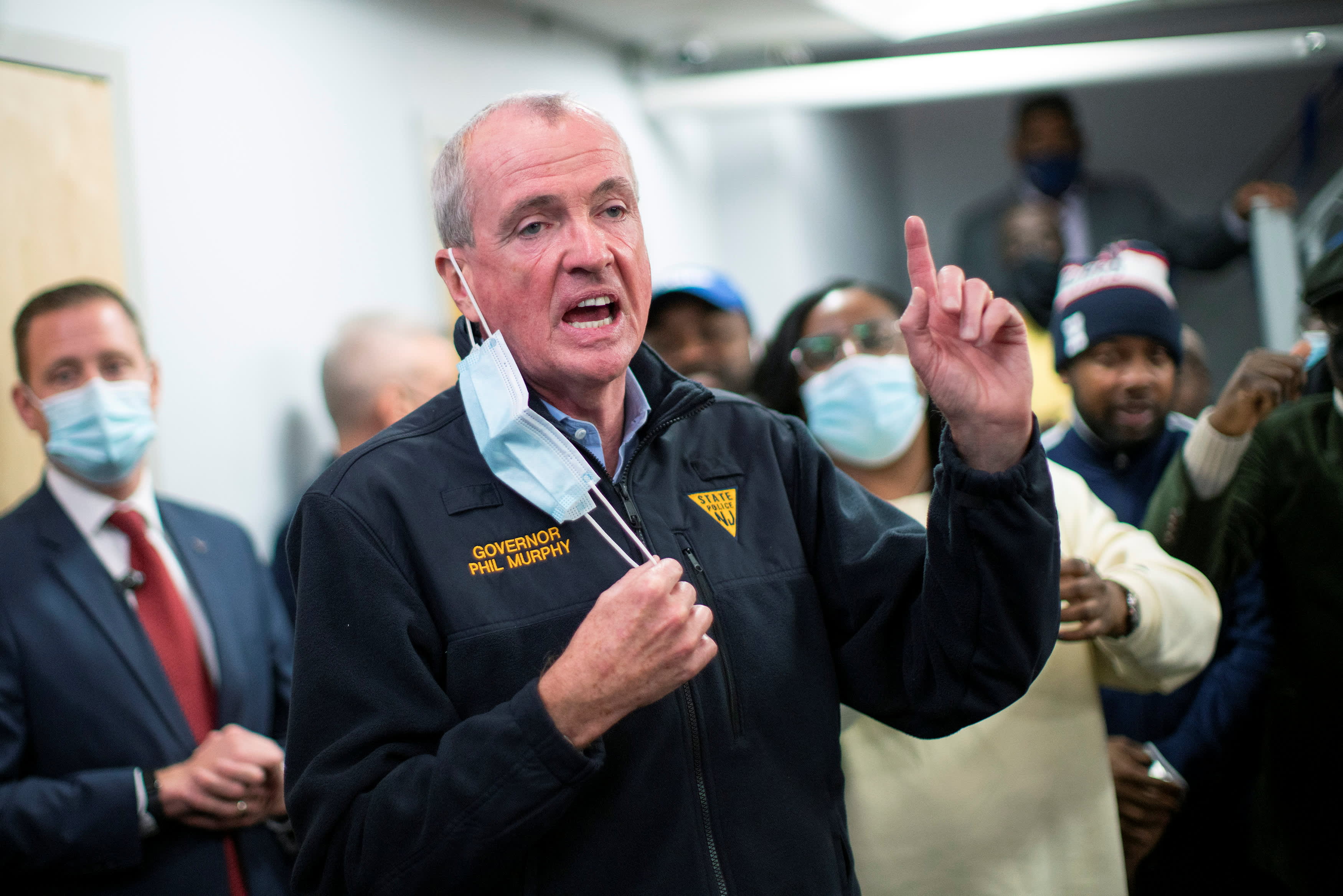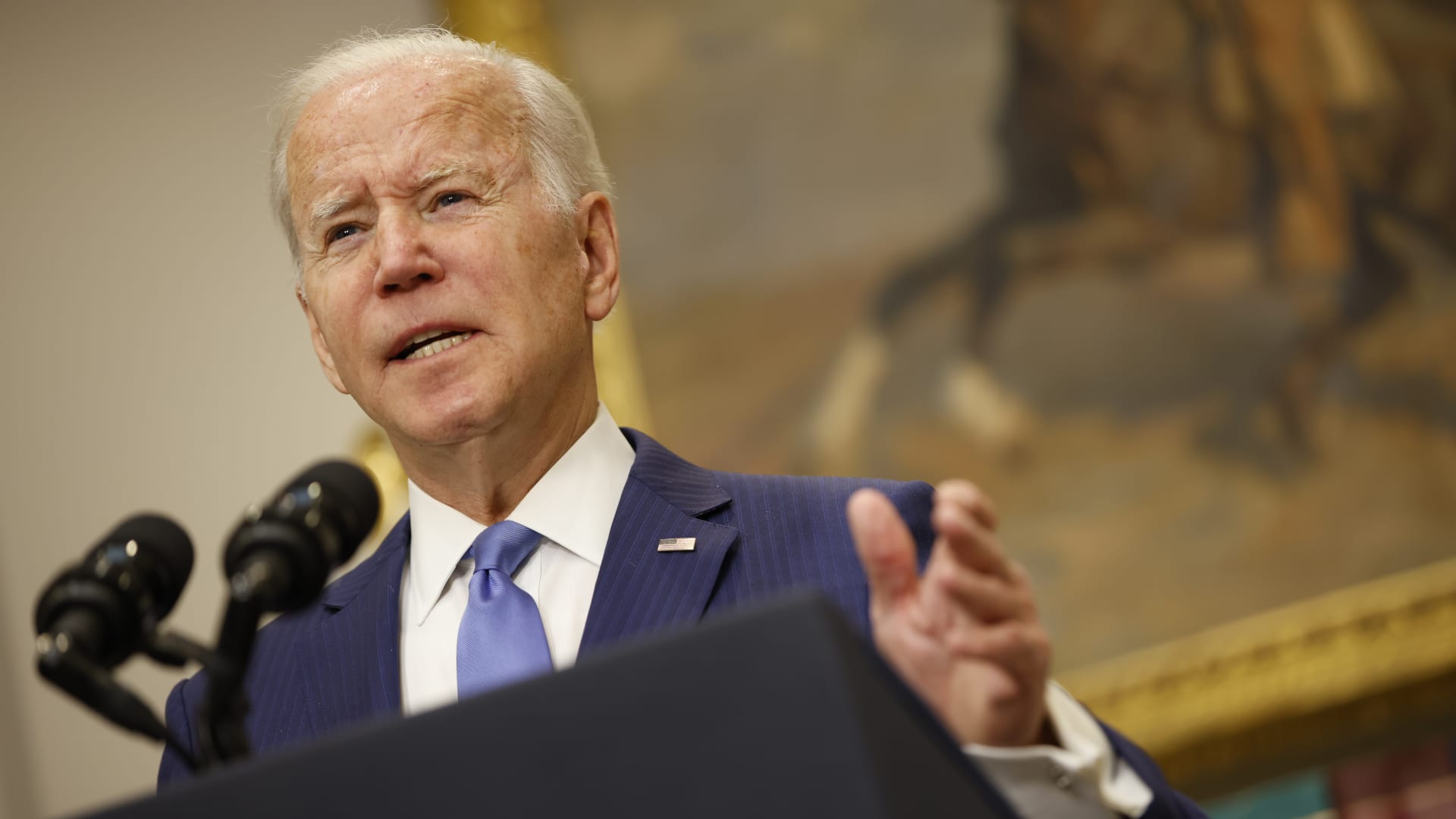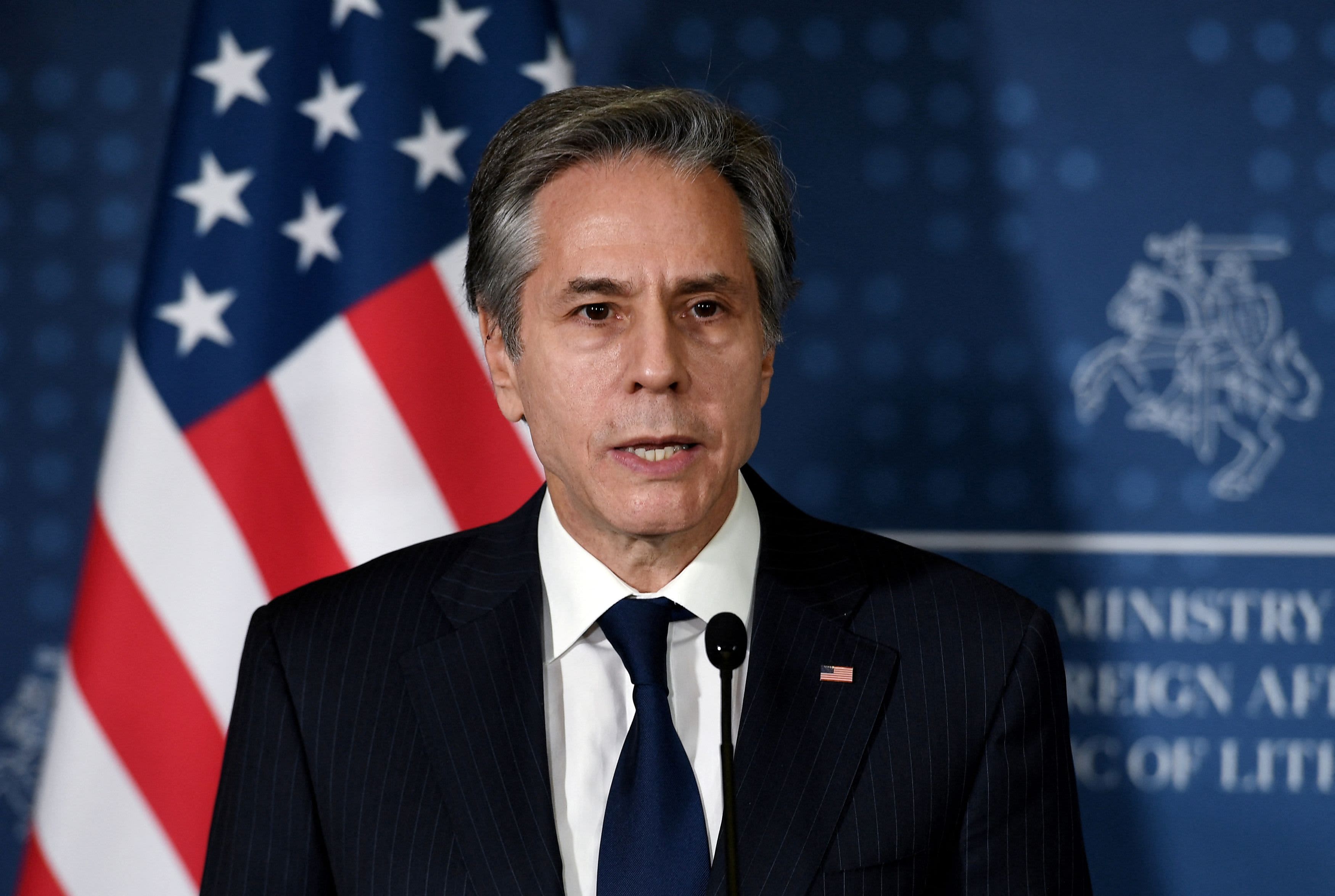Senators spar over whether CFPB has the power to root out junk fees
Democrats accused big banks of funding GOP efforts to undermine the CFPB during a Senate subcommittee hearing.

Signage at the Consumer Financial Protection Bureau (CFPB) headquarters in Washington, D.C.
Andrew Kelly | Reuters
WASHINGTON — Members of the Senate Banking Committee jostled Wednesday over whether the leading U.S. consumer protection agency has the power to curb so-called junk fees that affect millions of consumers every year.
Republican lawmakers have accused the Consumer Financial Protection Bureau of operating outside of its jurisdiction by enforcing the Biden administration's proposals to crack down on the charges. Democrats have defended the agency's ability to target the much-maligned fees and shield consumers from what they call burdensome costs.
The committee's first hearing comes as the Biden administration takes a range of steps to root out junk fees, which the CFPB says includes credit card late fees, overdraft fees and surcharges on ticket purchases. Among other actions, the agency recently fined Bank of America $150 million for charging its customers multiple overdraft fees.
The GOP criticism comes amid a sustained Republican effort to claw back the CFPB's powers.
The agency "is undertaking a name and shame campaign to coerce banks who were following the established prudential standards for the crime of listening to their previous federal regulators," said Sen. Thom Tillis, R-N.C., ranking member of the subcommittee on Financial Institutions and Consumer Protection.
The CFPB has drawn Republican ire for a variety of proposals to curb the charges, including a plan to cap credit card late fees at as little as $8.
In his testimony, Brian Johnson, managing director of financial regulatory consultancy Patomak Global Partners, said the CFPB "has been the most enthusiastic among regulators" in targeting junk fees. Johnson, who served as the CFPB's deputy director under former President Donald Trump, accused the agency of "indiscriminately attacking a growing list of common financial services fees, no matter that they are lawful and fully disclosed."
Democrats argued the power to target junk fees fits within the CFPB's core duties.
Sen. Elizabeth Warren, a critical figure in creating the CFPB, said the agency has effectively deterred banks from collecting billions in predatory fees from consumers.
"Name your favorite big bank: Bank of America, Wells Fargo, JP Morgan Chase ... and chances are that the CFPB has caught them red-handed engaging in any one of these tricks, at least once, and sometimes all at the same time," Warren, D-Mass., said. "The banks claim that these fees help consumers by allowing banks to offer overdraft protection to those who want it."
"And let's not forget, these are the same banks that are bankrolling the attacks on the CFPB," Warren added.
JP Morgan Chase and Wells Fargo declined to comment. A Bank of America spokesperson did not immediately respond to requests for comment from CNBC.
Pennsylvania Attorney General Michelle Henry testified that overdraft fees do not benefit customers as banks claim.
"The truth is they hit families of color harder and often result in account closures, leaving them unbanked," Henry said, adding that 90% of those who pay overdraft and nonsufficient fund fees "generally pay three or more a year while earning less than $50,000."
Henry also contended big banks can't be trusted to act in the best interest of consumers on their own.
Sen. Raphael Warnock, a Georgia Democrat and chair of the subcommittee, said that junk fees serve to keep "hardworking Americans" out of the financial system and on the margins of the economy.
"We must hold these businesses accountable when they use their profits off the backs of hardworking Americans and ensure that they are not looking at these customers as easy targets to be taken advantage of with onerous and opaque fees," Warnock said.

 FrankLin
FrankLin 






















.jpg&h=630&w=1200&q=100&v=154b70b92d&c=1)







